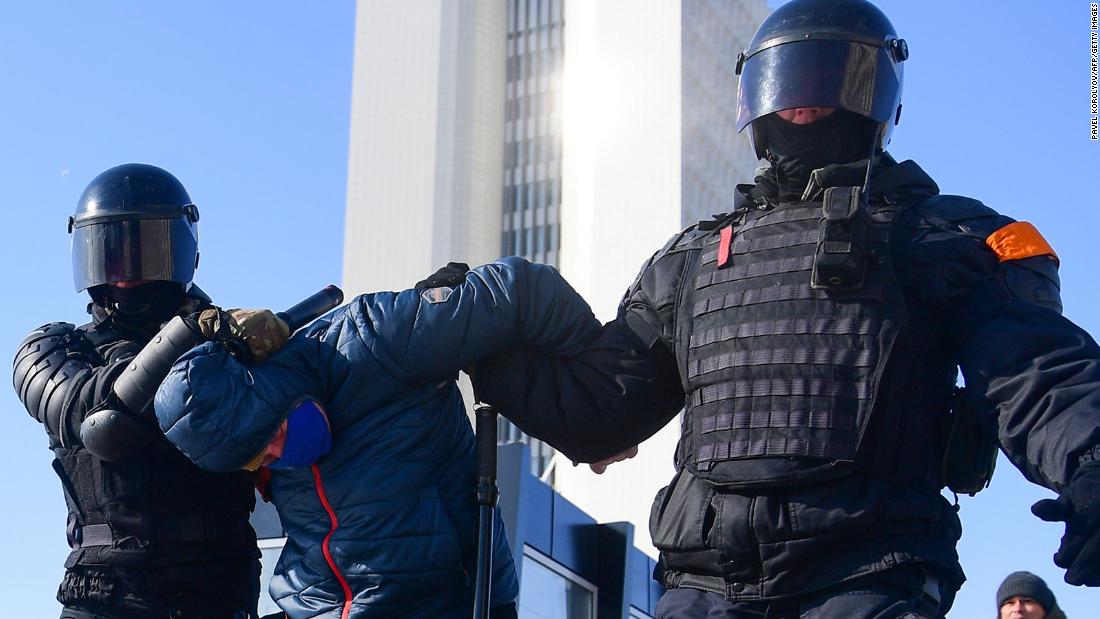Navalny’s supporters said they planned protests across the country in at least 120 cities, with each scheduled to start at noon, local time in that city. The country covers 11 time zones.
Live video feeds and social media videos show crowds gathering in several cities, shouting “Putin is a thief”.
Navalny was arrested on January 17, moments after arriving in Moscow, after months of treatment in Germany after being poisoned in August 2020 by nervous agent Novichok. He blamed the Russian government for the poisoning, an allegation the Kremlin has repeatedly denied.
The politician is currently in custody before a February 2 hearing, where a court will decide whether his sentence suspended for fraud in a 2014 embezzlement case should be converted into a prison due to what the Russian authorities say is a violation of the terms of his suspended sentence.
Speaking at that hearing, Navalny asked the protesters to continue to demonstrate.
“They are the last barrier that prevents those in power to steal everything. They are the real patriots,” he said. “You will not be able to intimidate us – we are the majority.”
Russia’s Ministry of Internal Affairs has warned Russian citizens not to participate in “unauthorized” protests. “The Russian Ministry of Internal Affairs urges citizens to refrain from participating in unauthorized protests,” the ministry said in an Instagram post.
Russian federal law requires organizers to file an appeal with local authorities at least 10 days in advance to obtain permission to hold a protest.
According to OVD-Info, an independent website that monitors prisons, 261 people have so far been detained across Russia in connection with Sunday’s unsanctioned protests.
Security forces could be seen in force on the streets of central Moscow early Sunday, including at Lubyanka Square, where the headquarters of the Russian Federal Security Service (FSB) is located.
Authorities announced before Sunday’s protests that certain streets in central Moscow would be closed, seven metro stations would be closed and that alcohol could not be sold in glass containers throughout the day.
In addition, the Moscow mayor’s office said cafes, restaurants and other eating facilities would be closed in the city center on Sunday, according to Russian state media agency TASS.
